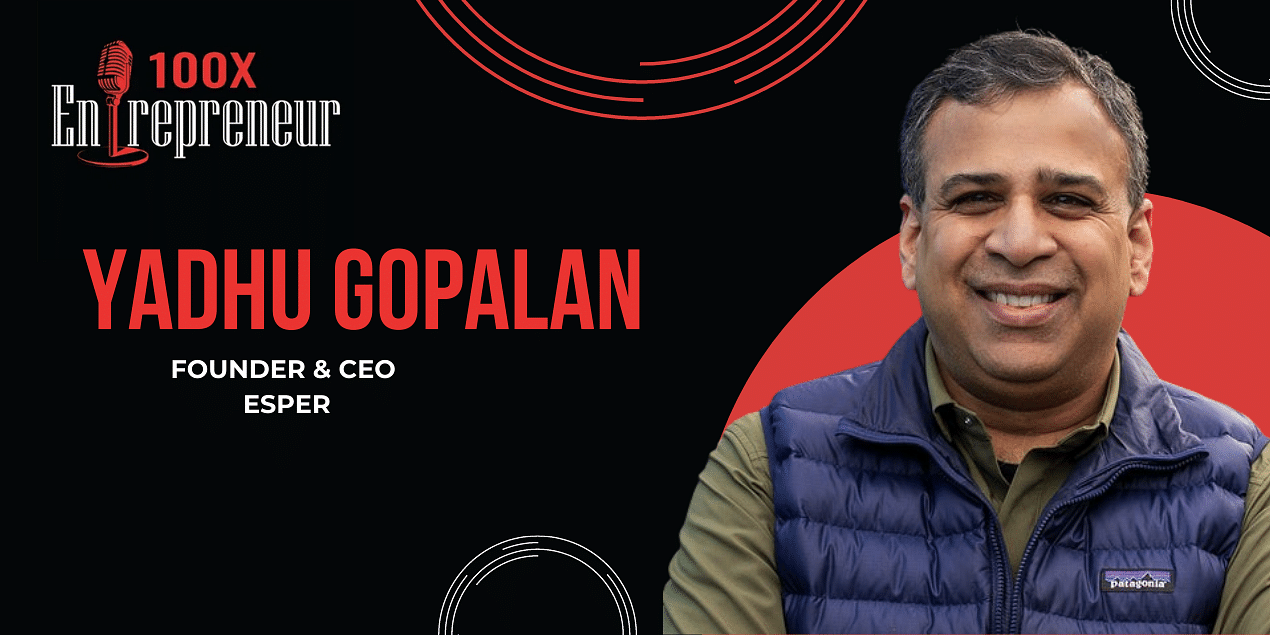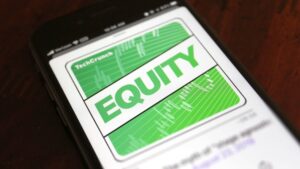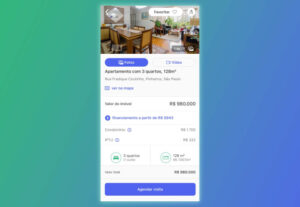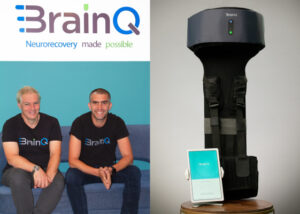Yadhu Gopalan spent over 25 years in the product engineering industry, including 16 years with Microsoft and about six years with Amazon. However, he started off as a kind of an operating system developer building kernels and file systems at a really low level.
Along the way, he grew and started building on cloud and larger scalable systems that are interactive with both devices and the cloud.
“I have spent a lot of time with devices. And from early on, I used to basically ship CDs to manufacturers and manufacturers would build devices etc, to a one year-two year cycle. But when cloud connectivity came where you could push updates, the ability finally came out that you can actually send an update to a device. But then again, like consumer devices, it’s kind of changed,” Yadhu says.
In a conversation with Siddhartha Ahluwalia, Founder and Host of 100x Entrepreneur, Yadhu explained his learnings from his previous companies and his journey to building his startup Esper, a device DevOps platform that helps organisations scale remotely and manage their mission critical devices.
A love for devices
Yadhu was eight years old when he moved to the US. Born in Tamil Nadu, his family moved to Maine where he did his schooling and college.
He believes that is where he got his “start”, spending a lot of time with college professors in computer labs. Eventually this journey led him to work on devices in corporates.
“Everybody expects updates, everybody expects to be able to have rapid development, agile programming, DevOps, and all these things that can be fairly new. DevOps has really been in the industry for 10 years. And when I was in Amazon, it’s an example of how we had to build these new systems and new devices for these amazing stores. We spent the first six months or more just building infrastructure- before we could actually do the value proposition of the system,” Yadhu explains.
He then started to think of opportunities to democratise this – so that “one does not have to spend very precious engineering resources, trying to duplicate infrastructure over and over again”.
That was the genesis behind starting Esper in 2017.
The growth phase
“When we got started, we had to build enough infrastructure before our customers got to put some devices in production on the platform. We spent about a year and a half building the system; we started to get some early trials and pilots out there by the end of 2019.”
Yadhu adds that his company got enough traction – to the point where Madrona Ventures invested in it in January 2020. By the end of the year, it had about 180 customers and was able to demonstrate product-market fit.
In 2021, despite COVID Esper claims to have seen a 4X growth in revenue. It was also able to secure Series B funding of $30 million from Scale Venture Partners and about $60 million in Series C funding led by Insight Partners a few months later. This gave the team a good amount of capital to build and grow its teams in India and the US.
Yadhu says, “We have a really good value proposition. It is not just about the – we have built culture from day one, and the type of people we want. And I think when all these top-notch people look at us, they look at the founders, they look at the team that we built, and the culture we built and the value proposition of the product that we’re building…all of that kind of comes together to [be] something that people desire to be able to join and build. We have a ton of builders, in all aspects, not just engineering. And that’s what’s exciting to me.”
To know more, listen to the podcast here:
01:12 – Journey before starting Esper
02:20 – Early childhood and moving to the US
03:48 – Problem statement behind starting Esper
05:25 – Product offering and clients
10:25 – The founding team at Esper
15:43 – Attracting the best talent
16:50 – Building a team across geographies
19:07 – Execute distribution and partnerships at scale
20:39 – Work culture & learnings from Microsoft & Amazon
27:51 – Key learnings from his startup journey










